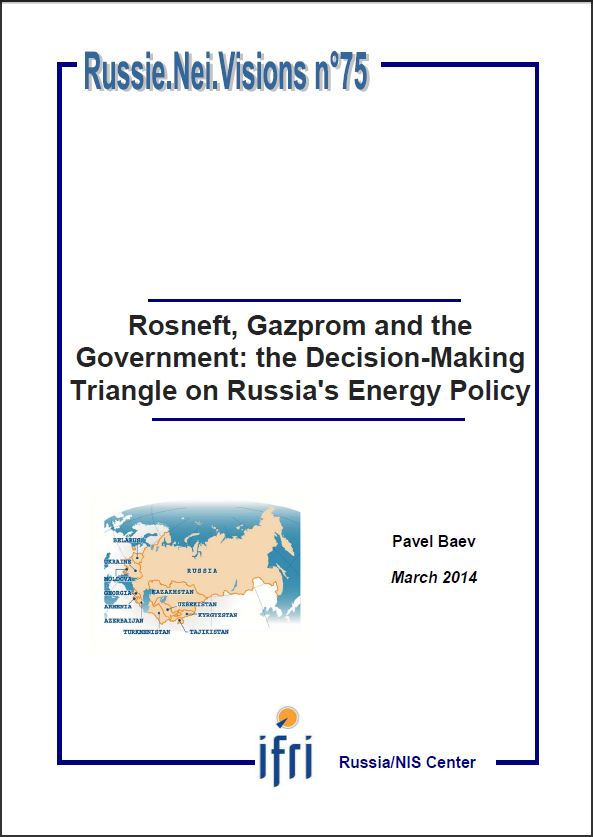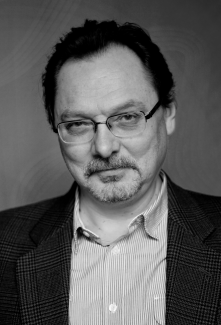Rosneft, Gazprom and the Government: the Decision-making Triangle on Russia's Energy Policy

Russia finds itself exposed to many risks in the fast-moving global revolution in energy affairs, and cannot avail of its opportunities despite its unique combination of natural resources and experience in their exploitation. It has entered the phase of economic stagnation, and the under-performance of the energy sector is one of the key determinants of the durability of this trend.
Energy export can no longer be wielded as a heavy-impact instrument of foreign policy, and the squabbles for shrinking oil and gas revenues form a key driver of the evolving crisis of the petro-authoritarian regime built by President Vladimir Putin. Escalating problems in the Russian energy sector are caused by the system of decision-making on oil and gas matters, in which Putin acts as a supreme arbiter in the flexible triangle formed by the government and two super-large state companies—Gazprom and Rosneft.
Download the full analysis
This page contains only a summary of our work. If you would like to have access to all the information from our research on the subject, you can download the full version in PDF format.
Rosneft, Gazprom and the Government: the Decision-making Triangle on Russia's Energy Policy
Related centers and programs
Discover our other research centers and programsFind out more
Discover all our analysesRussia, the Palestinians and Gaza: Adjustments after October 7th
The Soviet Union (USSR), and subsequently the Russian Federation as its internationally recognized legal successor, has consistently sought to play a visible role in efforts to resolve the Israeli-Palestinian conflict.
Deathonomics: The Social, Political, and Economic Costs of War in Russia
The report attempts to outline and examine a truly new phenomenon in Russian society, dubbed “deathonomics”—the making of a mercenary army against the backdrop of the Kremlin’s war in Ukraine, eventually replacing both the Soviet (conscript) and early new Russian (contract) armies. It notes that, by the end of 2023, this trend had turned the military service into one of the highest-paying professions in the country, something not seen in Russia on such a scale since the late 17th century.
Russia's Asia Strategy: Bolstering the Eagle's Eastern Wing
Among Russia’s strategic priorities, Asia traditionally played a secondary role compared to the West. In the mid-1990s, then Foreign Minister Yevgeny Primakov initiated a rapprochement with China and India. Then, in 2014, deteriorating relations between Russia and the West prompted Moscow to begin its “great pivot to the East”.
Kazakhstan After the Double Shock of 2022: Political, Economic and Military Consequences
The year 2022 represented a dual shock for Kazakhstan. In January, the country faced its most severe political crisis since independence, followed in February by Russia’s full-scale invasion of Ukraine, which cast uncertainty over the borders of post-Soviet states. These consecutive crises profoundly shaped Kazakhstan’s domestic and foreign policy.













